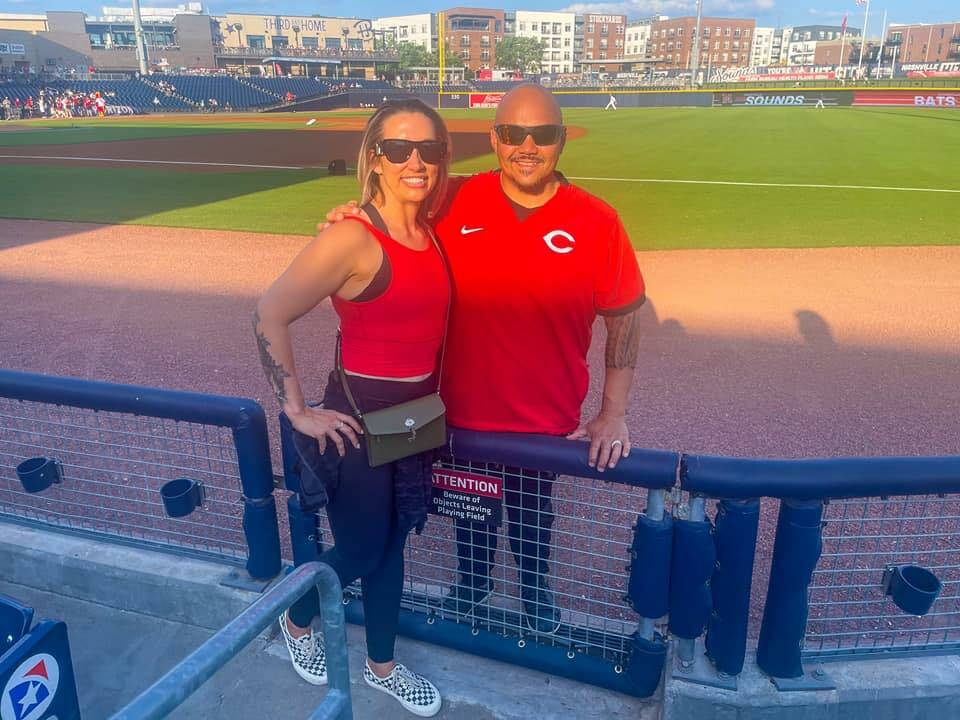Last in a series of stories on local people who worked in professional sports.
Kenny Matanane works for Louisville Bats, the Cincinnati Reds AAA team, as the strength and conditioning coach.
Before reaching the professional scene, he focused on baseball during high school in Bremerton. In addition, he played two years of football and wrestled his senior year to stay in shape for baseball.
“Baseball is my first love,” Matanane said. “I wanted to be a baseball player. Obviously, that didn’t pan out after high school.”
Matanane’s senior class reached the regional championships while his wrestling team won league in 1992. The former first baseman went to Central Washington University in Ellensburg. Although he had a passion for sports, he was unable to find a path into that world out of college.
“I didn’t know strength and conditioning even existed when I first went to school,” Matanane said, adding his first degree was in business and finance. But “after six years in the real world, I realized that wasn’t my forte. I didn’t love it as much as I loved sports and fitness.”
Matanane’s career path took a turn in 2001 when he ran across a Sports Illustrated article. “It was about [ex-Red Sox great Nomar Garciapparra] building his body in the offseason with his former college strength and conditioning coach,” Matanane said.
After learning about the strength and conditioning world, he returned to CWU to earn his master’s in exercise and physiology. During his second round at CWU, Matanane met his wife Janette.
“Coming from a Division 2 school with no strength and conditioning program, it was hard to find a job,” Matanane said. “I called Washington State and asked if I could volunteer in their athletic program in order to gain some experience. When I got up there, the head strength and conditioning coach took leave because he injured himself. Since I was certified with a degree, Washington State University became my first job out of college.”
Matanane said the most important thing he learned there was how to deal with athletes.
“It’s not just counting reps and building, it’s about connecting with the people too,” he said. “There are so many different personalities and backgrounds that you have to learn to adapt to.”
Later on, Matanane’s boss, Rob Oviatt, got a call from one of his friends, Mike Clark, the head strength and conditioning coach for the Seattle Seahawks during the 2000s. Clark needed an assistant strength and conditioning coach. Oviatt pushed for Matanane, who got the job in 2008.
While working for the Seahawks, Matanane learned some differences between college and pro athletes.
“Some of the major challenges in the pros are the different backgrounds,” Matanane said. “I’ve had Japanese, Korean, Chinese and Latino players who have different backgrounds and cultures and have to find a way to communicate, even though you may not speak their language.”
Another difference was in college, the NCAA allows athletes to participate in physical exercise a certain amount of hours every week. So, if a head coach wanted to change the schedule on the fly, Matanane had to adjust quickly. Also, pro athletes have more freedom in the offseason. They would head home and work with their own trainers while college athletes worked alongside Matanane and his staff in the offseason.
Although the Seahawks job was tougher than his previous gigs, Matanane enjoyed every moment. However, his time in Seattle did not last long.
“The ugly side of athletics is that new coaching regimes bring new staff,” Matanane said. “The Seahawks had their worst seasons when I was there. They brought in Pete Carroll, and he cleared out room to bring in his own guys.”
Matanane sent his resumé to nearly every major league organization. After working privately for 10 months, the Pittsburgh Pirates gave him the opportunity of a lifetime. “I was trying to get into baseball, which is what I was trying to do from the jump,” he said. “My whole career path has been wanting to be a Major League Baseball strength and conditioning coach.”
The Pirates were the first to take a chance on him in 2010.
Since then, Matanane has bounced around a few MLB teams. From 2014-21, he worked for the Philadelphia Phillies. In December 2021, he took over his current job in Louisville.
In his 20 years as a strength and conditioning coach, he has had many highlights. Matanane said his favorite moments are seeing his players make the majors. “One of the biggest highlights I had was a catcher who has been in Triple-A for three seasons, and he finally got his call up and made his Major League debut,” Matanane said.
Although Matanane enjoys his profession, there are some moments when he gets homesick. “It happens every year,” he said “Due to the nature of baseball, I have to leave my family during the season. It’s tough leaving my family every year.”
Matanane leaves his wife and two dogs in Florida during the season.
Matanane also has had to learn to adapt to the profession constantly due to the increase in technology.
“When I first got into strength and conditioning, I thought it was just speed, strength and development,” Matanane said. With new technology “we understand the body better. It’s strength, speed, conditioning and recovery.
“When I started in 2003, our protocols were a certain amount of sets and reps. Now, it’s sets, reps, recovery and whatever modalities we are doing to get back on the field.”
In the future, Matanane wants to build his own program. “To be able to have my own facility has always been my endgame and retirement because I can be home year-round.”



